Analyzing the Role of Gender in Career Advancement
VerifiedAdded on 2020/02/18
|5
|846
|44
Essay
AI Summary
This essay delves into the complex dynamics of gender in leadership, career progression, and equity, drawing upon research and surveys to illustrate differing perspectives between men and women. It examines the perceptions of gender equality initiatives, such as quota systems, and their impact on management and career advancement. The essay highlights the contrasting views on the effectiveness of policies aimed at empowering women, with men often perceiving positive outcomes while women express skepticism. It also touches upon the shifts in international development and the challenges and opportunities for gender equality and women's rights. The essay references various studies to provide a comprehensive analysis of gender's role in the workplace and in broader societal contexts.
1 out of 5
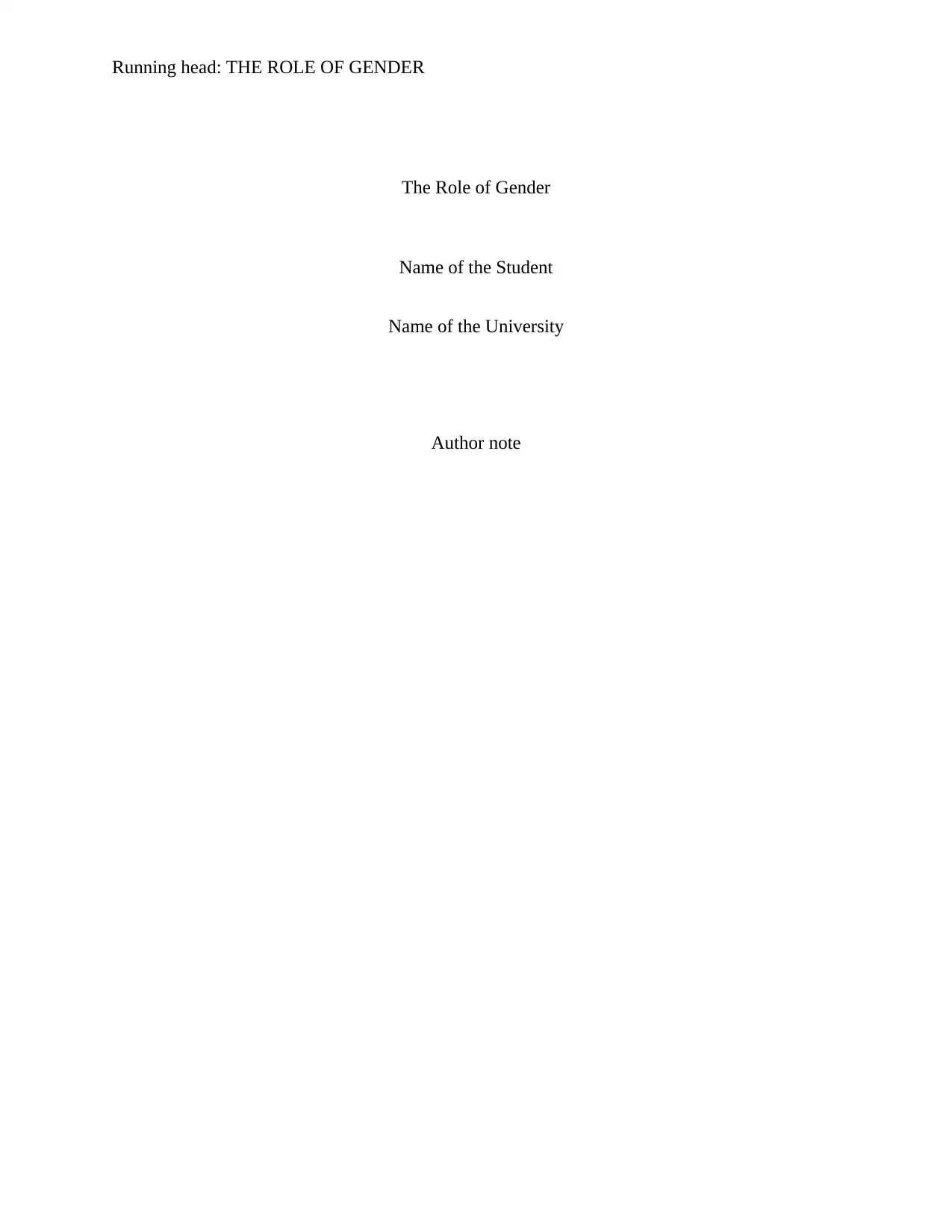
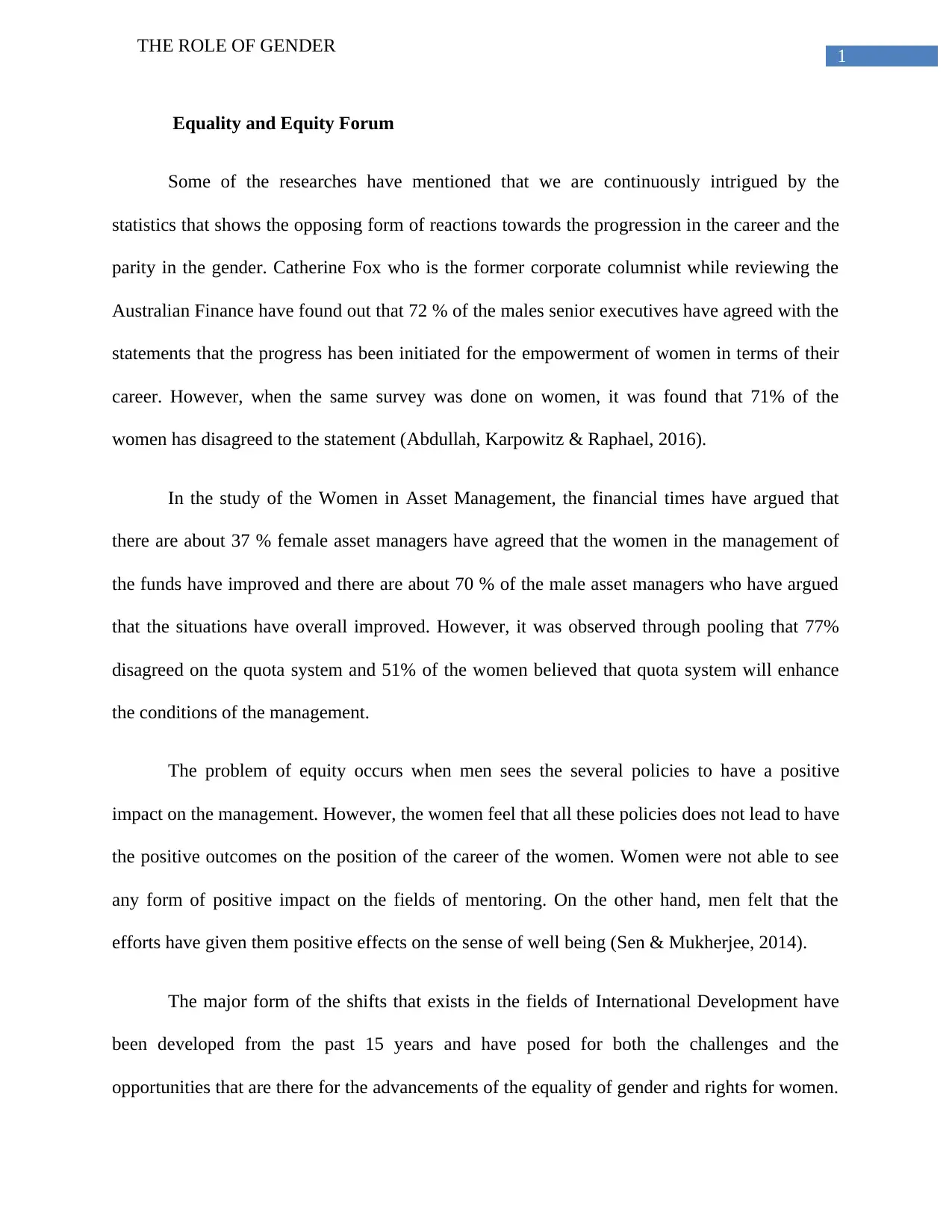
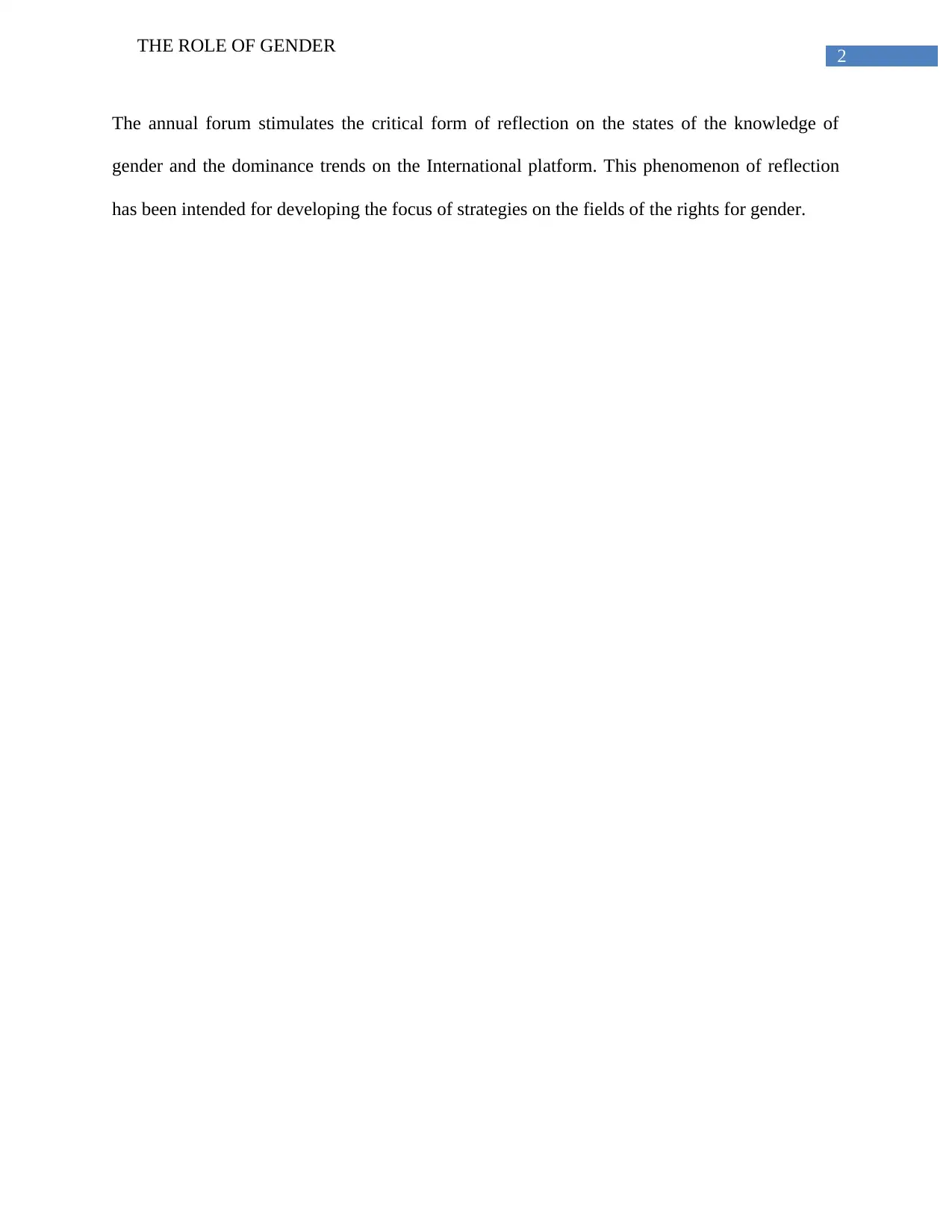

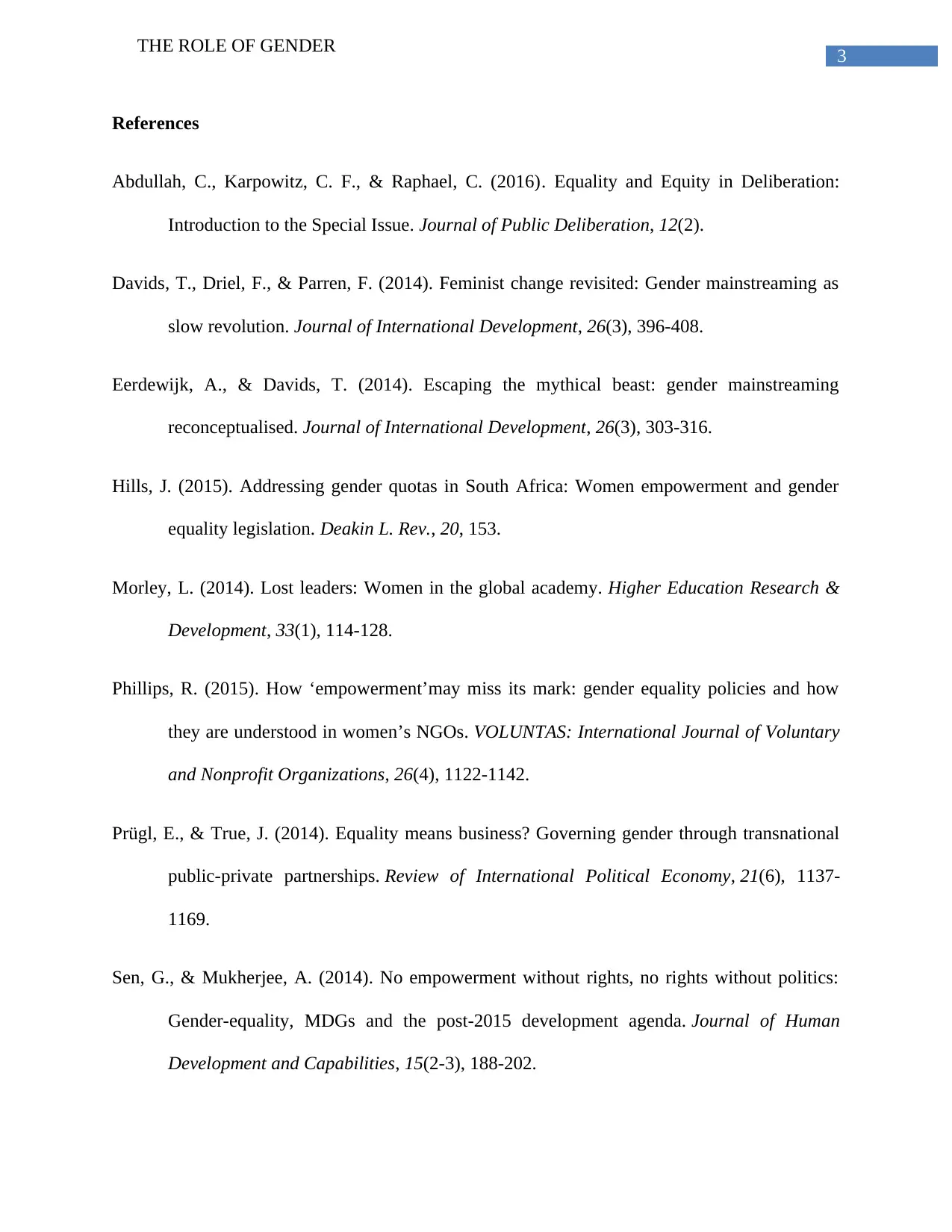
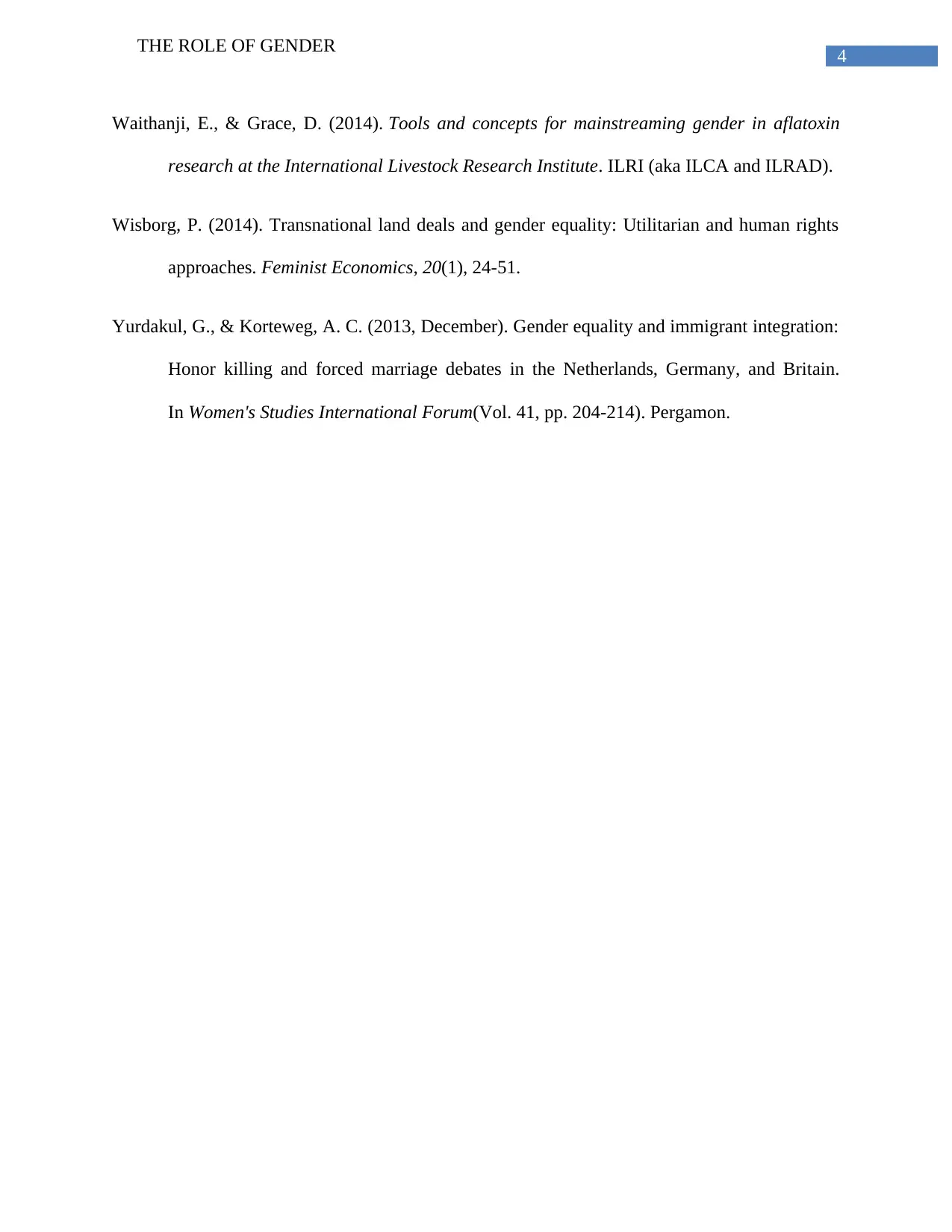



![[object Object]](/_next/static/media/star-bottom.7253800d.svg)